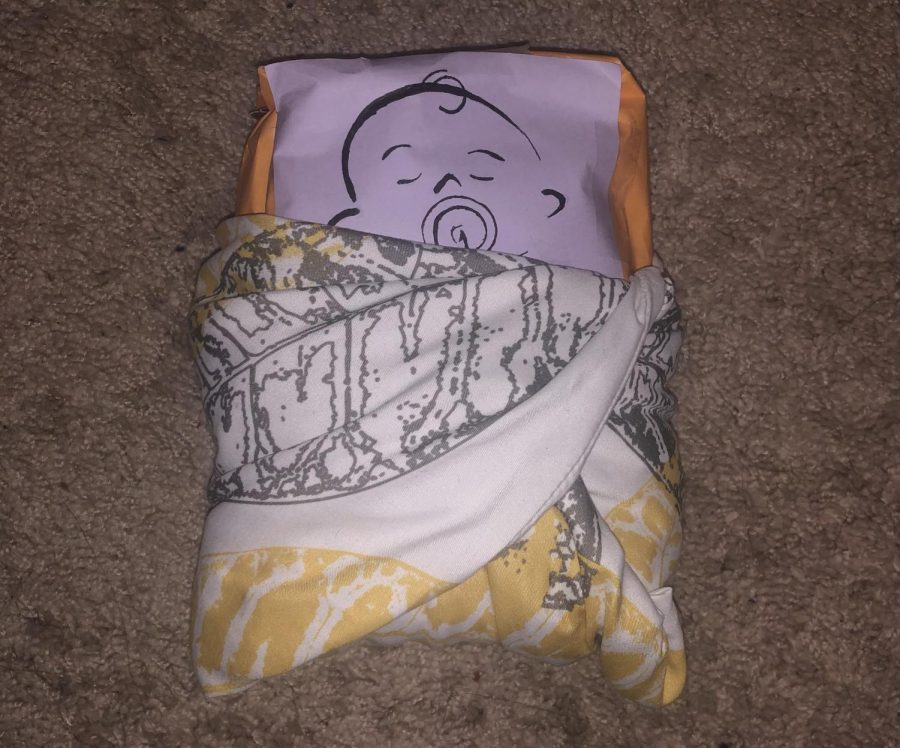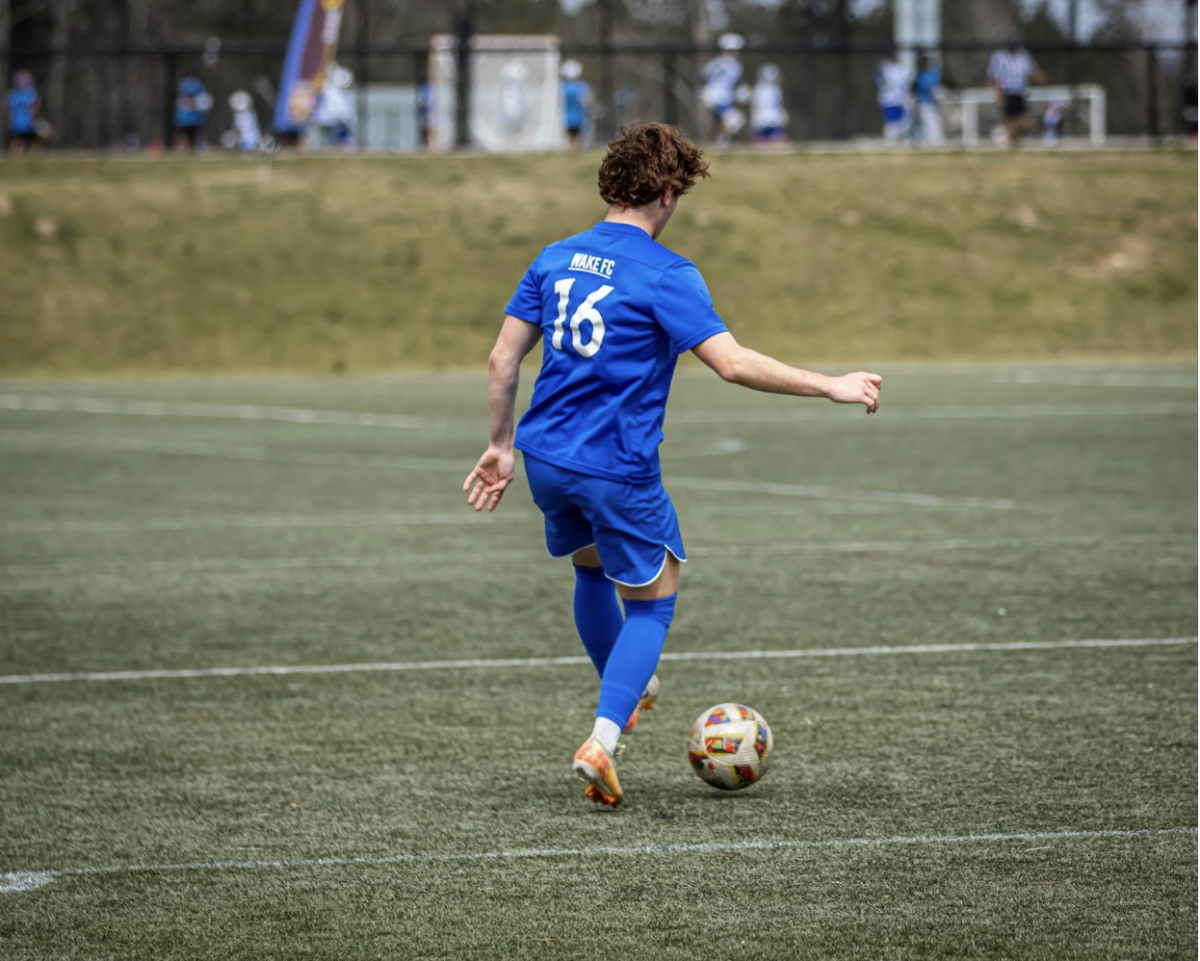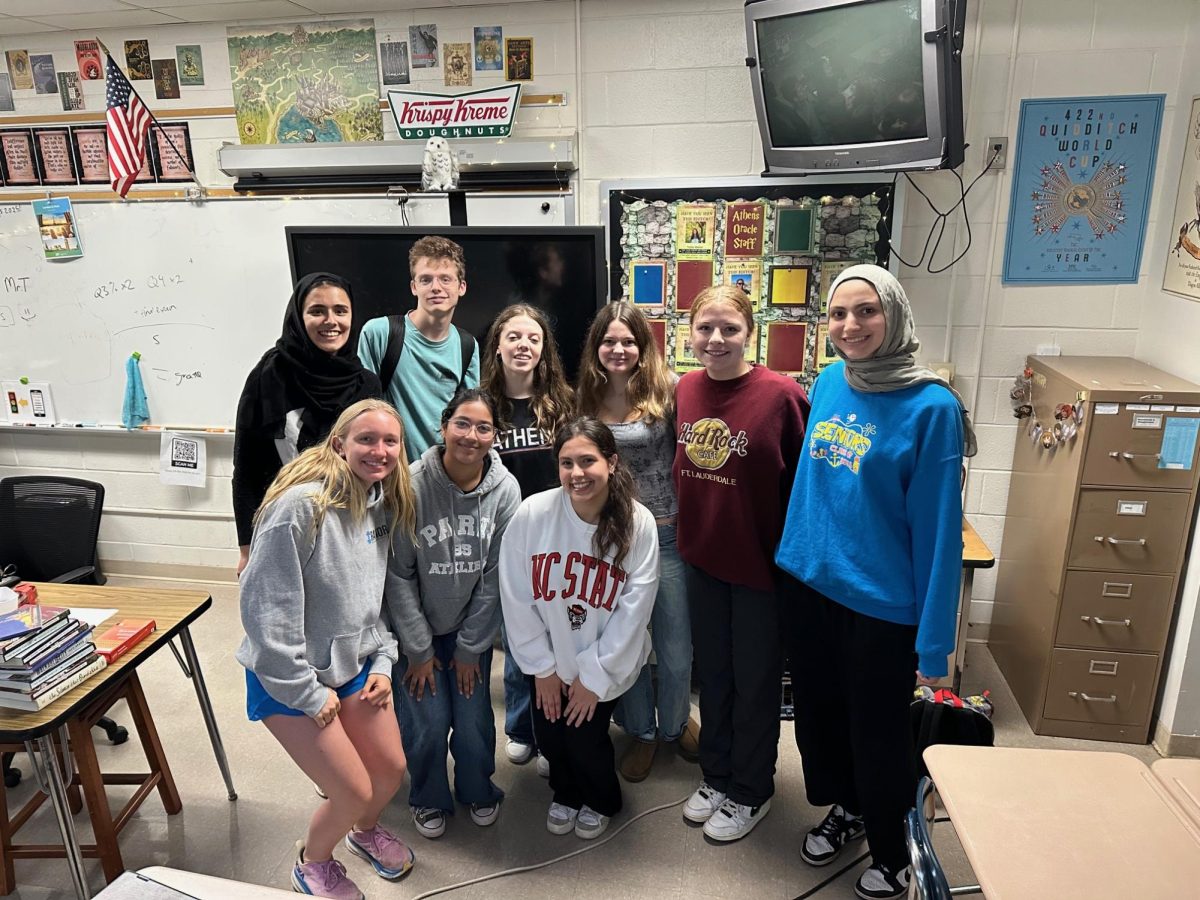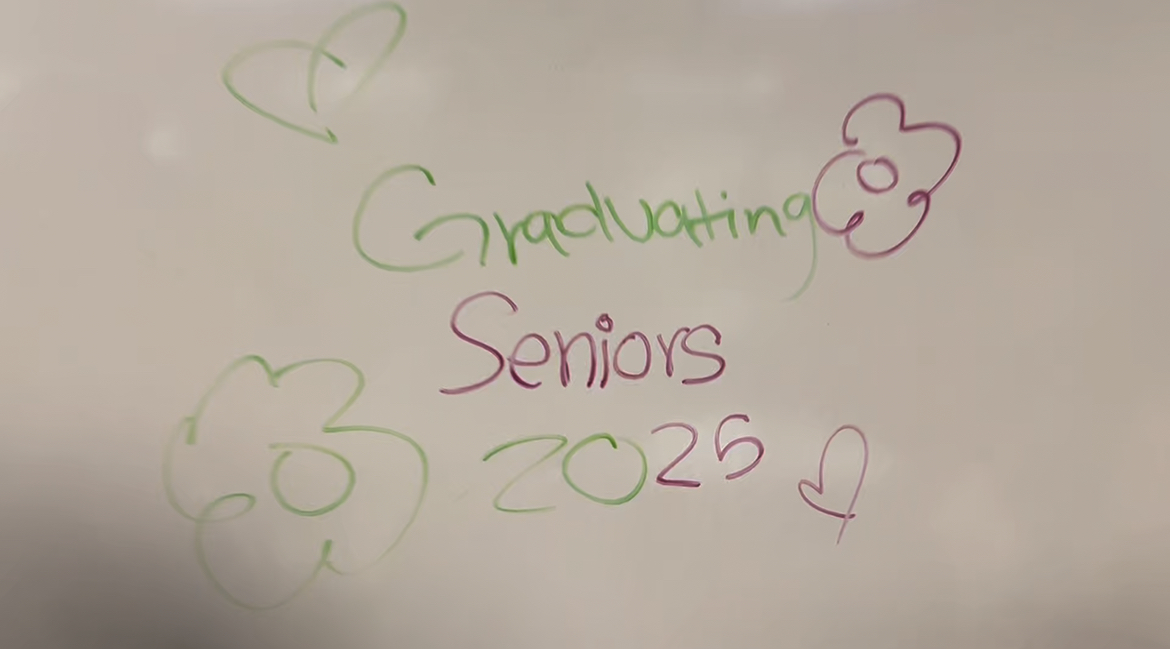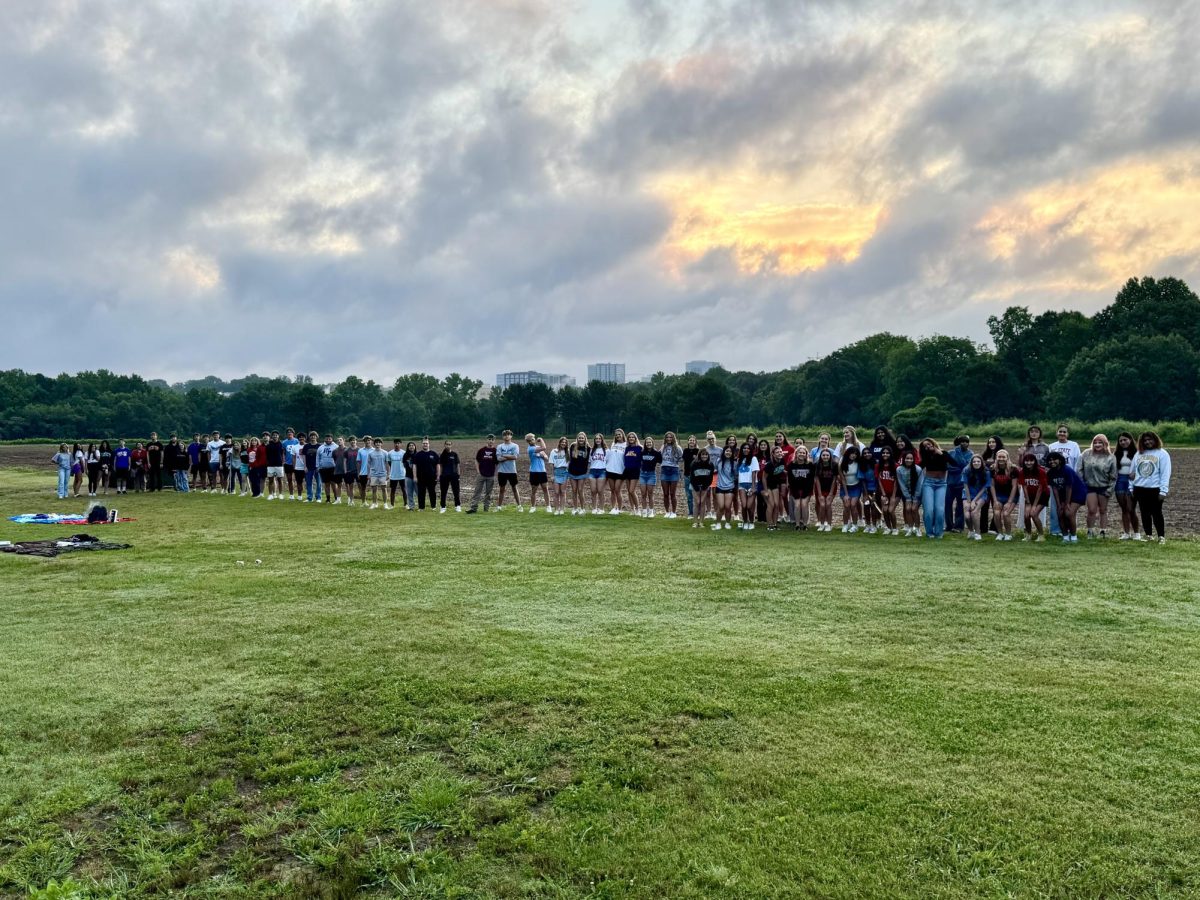Students in the AP Psychology course were assigned a project this quarter that required them to carry around an object that resembles a child. Crafting skills came to light as students styled cereal boxes and stuffed animals. Students spent a week with their food baby and experienced being a parent with a child that is still growing and learning.
“My project was about tracking the cognitive, psychological, and physical development of a baby,” said Mollyne Doresty, senior.
For the week that students had to spend with their pretend baby, they were responsible for caring and looking after it. Attendance was taken for the babies each day in class. Attendance would count if the baby arrived safely to class, in its carrier, fully clothed and breathing, meaning that the baby’s face was exposed. Students were not allowed to leave their babies at home, in their lockers or in their cars. Even out of school, if they went out they had to take the baby with them or find a babysitter.
“It’s hard to keep track of a baby. The development process happens quicker than I thought,” said Doresty.
Students had to make a scrapbook in the form of a powerpoint, video or an actual scrapbook about the milestones of their pretend baby. In their scrapbook, they had to include pictures and details of their week with their pretend baby. The picture milestones that students had to include were the day of birth, meaning the day they “adopted’’ their baby, six months, first birthday, 13 months, second birthday, third birthday, fifth birthday, seventh birthday and thirteenth birthday.
With this project, there were a few ways that students could lose points. If students were spotted neglecting their babies or harming another student’s child, points would be deducted from their grade for each infraction. Points would be taken away if the baby became a distraction or if the baby was disposed of on school grounds.
“It was difficult keeping track of the baby, cause you usually don’t carry around a bag of sugar so I forgot it in my house a lot,” said Doresty.
Students were told rules such as not dropping the baby and holding its neck correctly. They had to figure out how to care for the baby like any new parent would do the same.
“It’s important to show us the real way of pregnancy and not the glamorization of it,” said Kaylund Watson, senior.
The project was a learning experience for students. Having to care for a pretend baby and treat it as if it were a real baby that has to grow and develop. Many students may even think that this project was important.
“I think it’s important so you know how in the future when you have a child to know their cognitive state at what age so you know how to handle them,” said Doresty.

